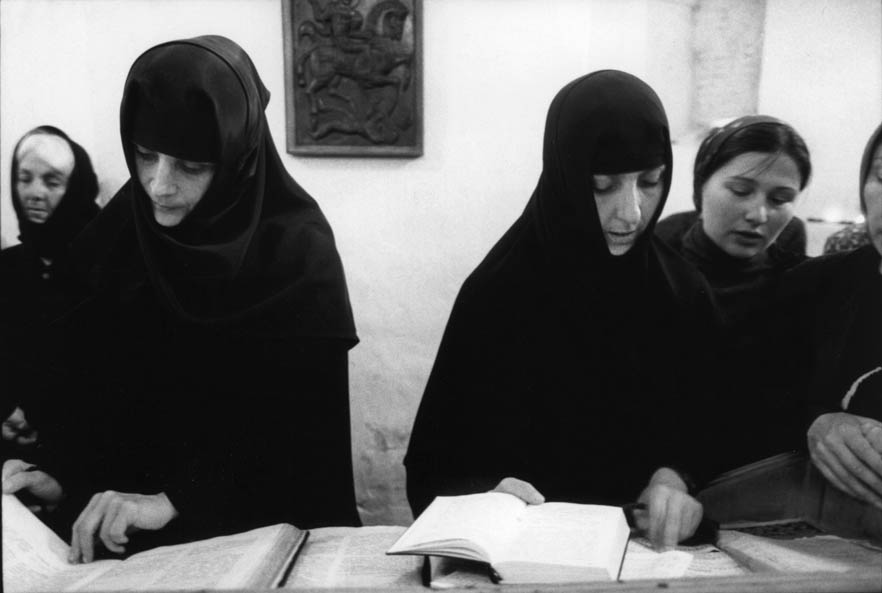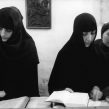
Abkhaz Muslims Become Target of Kremlin’s Hidden War
Publication: Eurasia Daily Monitor Volume: 7 Issue: 185
By:

Since little statistical data exists, it is rather difficult to calculate the exact number or relative percentages of Muslims and Christians living in today’s Abkhazia. The leadership of the Russian Orthodox Church in Abkhazia always tries to pretend that there are two or three times as many Christians there as Muslims, which is hardly the reality, especially against the background of the exodus of Georgians from Abkhazia in the early 1990’s. The Muslim leadership, on the other hand, claims that up to nearly 35 percent of the entire population is Muslim, which is likewise difficult to believe since several dozen parishioners at most gather in Sukhumi for Friday prayers.
What in fact is happening there is that since the breakup of the Soviet Union there has been a fierce competition between the two religions for those who in general stand far away from both church and mosque and are instead associating themselves with ancient societal traditions that intersect with paganism. For a certain period of time, Christianity, which emerged in those territories already during the apostles and their disciples, enjoyed a strong influence in Abkhazia. Islam, which reached those lands later on, managed to become a strong competitor under the influence of the Ottoman Empire. Nonetheless, Muslim influence waned after Abkhazia was colonized by the Russian Empire in the 1860’s and as a result the Muslim Abkhaz, also called Muhajirun, moved to the Ottoman Empire.
During the Soviet era, the positions of both the Christians and the Muslims that remained were weakened, which left ample room for atheism. In any case, in today’s Abkhazia there are many who nominally consider themselves as representatives of a particular religion only by inertia, but there are few who would agree to be called practicing Muslims or Christians.
No functioning mosque remained in Abkhazia during the Soviet period. When, in the early 1990’s, a number of people expressed a desire to reopen mosques, the official response of the Abkhaz leadership, which was carefully guarding Moscow’s interests in the region, was not very friendly. Even today, there is not even a single fully functioning mosque in Abkhazia. The so-called mosque in Sukhumi is nothing but a private house. Muslim religious services in the cities of Sukhumi, Gagra and Gudauta, as well as other locations, take place exclusively on rented private property that have been turned into houses of worship.
The revival of a part of the Abkhaz youth actively practicing Islam is first and foremost associated with those Muhajirun who left for the Ottoman Empire after the end of the Caucasus War. Being politically active, they are more aggressive with their plans to establish a firm foundation for Islam in Abkhazia by repatriating descendents of the Muhajirun to their historical homeland. According to the Imam of the Sukhumi mosque, Salikh Kvaratskhelia (www.newsru.com, June 2), the Muslim population is increasing annually thanks to the young people embracing Islam in larger numbers. However, it is hard to speak of any cardinal changes.
Against this background, it is difficult to explain the undeclared war against Muslims in Abkhazia. On October 8, a rented building where a mosque owned by the Spiritual Board of Abkhaz Muslims (SBAM) is located was fired upon by unidentified men (www.newsru.com, October 8). One person was killed and two others were wounded in the incident, all of them SBAM representatives. It is important to note that this was not the first time that an SBAM member was killed in Abkhazia. In August 2007, Imam Khamzat Gitsba and a resident of the Russian city of Ufa, Ruslan Assadulin, was killed by unidentified gunmen in the town of Gudauta. They were the first victims of religious hatred. Then there was an attempt to blame the murders on personal intrigues. On July 10 of this year, passers-by noticed an explosive device under the imam’s car, which was parked in the vicinity of the Kelasuri railroad station in Sukhumi. With the help of Halo Trust (a British charity organization actively involved in demining efforts worldwide) the explosive was defused (www.kavkaz-uzel.ru/articles/171525). A week later, unidentified gunmen shot and killed Emmik Chachmach-ogly, a member of Abkhazia’s Public Chamber and the chairman of the Gagra division of SBAM (https://abkhasia.kavkaz-uzel.ru/articles/171764). This means that the assaults on the small Muslim community in Abkhazia are not accidental. What we are in fact witnessing is that a war is being unleashed in Abkhazia against those who practice Islam in that republic.
While the leadership of the Orthodox Church keeps silent, which could be interpreted in numerous ways, the SBAM issued a statement on October 11 straightforwardly asserting that the attack on the mosque in which one Muslim was killed and two were wounded was nothing but a brazen attempt to terrorize the Muslim residents of Abkhazia (www.kavkaz-news.info/portal/cnid_115761/alias__Caucasus-Info/lang__en/tabid__2434/default.aspx). This statement strongly indicates that the SBAM does not seem to be shying away from calling things by their names. A cruel and ruthless war is unfolding against the Muslims of Abkhazia.
The goal of the perpetrators of those actions is simply to intimidate the Muslim believers and force them to repudiate the idea of repatriating Abkhaz from Turkey. The incumbent pro-Moscow leadership in Abkhazia is trying to block any possible mass return of Muhajirun descendents that would by all means tilt the balance in this small region to the advantage of its Muslim population and would apparently change Sukhumi’s priority from Moscow to Ankara. If Muslim Abkhaz continue to return to Abkhazia in larger numbers, this will then create even greater problems for Russia. Moscow likely sees the influx of repatriates as potential militants who one day could open a second front in the western parts of the North Caucasus, particularly given the strong ethnic ties between the Abkhaz and Circassians. The Russian Orthodox Church does not conceal its interest in maintaining a status quo in which the nominal Christians and pagans would outnumber the Muslim population by several times.
The fact of the matter, however, is that the current Abkhaz leadership cannot ignore the Muhajirun descendents; all the more that they were seen as an important factor in ending international isolation by engaging with the powerful Abkhaz and Circassian diasporas in Turkey and elsewhere as a counterweight to the Russian businesses intruding from the north. Nonetheless, the diaspora’s plans do not match with the plans of the pro-Russian forces in the Abkhaz political establishment. Afraid of Moscow’s power, the incumbent local leadership feels compelled to put up with the murder of its own citizens. But the hidden war declared by Moscow against Islam in Abkhazia might create a huge problem for Russia’s relations with the rest of the Muslim world, particularly with neighboring Turkey. A bear’s attempt to hide behind an ant’s back is a truly awkward way of solving problems, and the situation in Abkhazia might take an unexpected turn in a direction that would not be particularly pleasant for Moscow.




